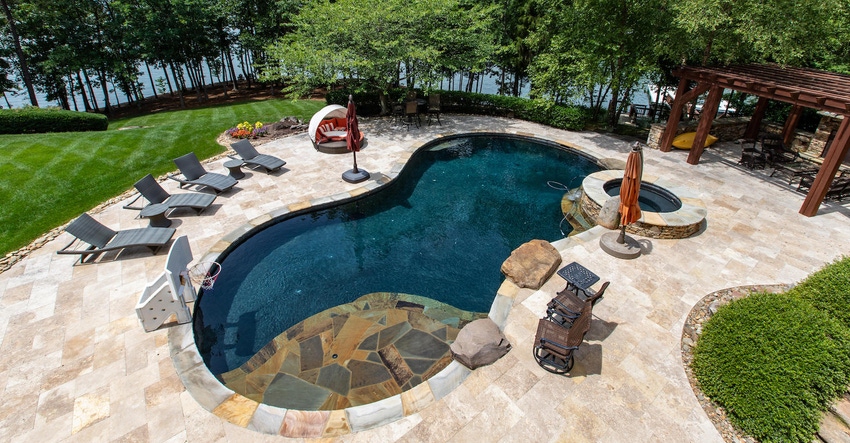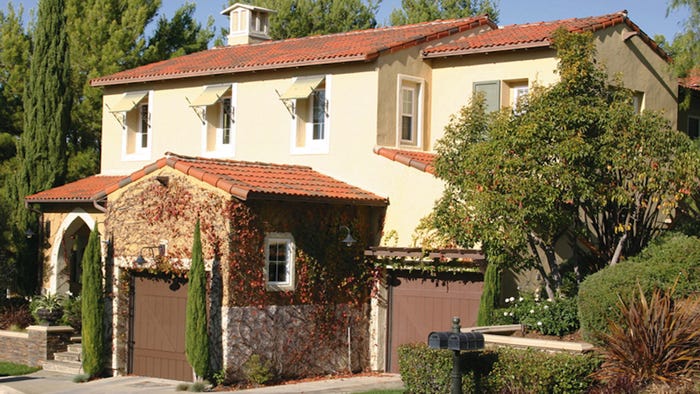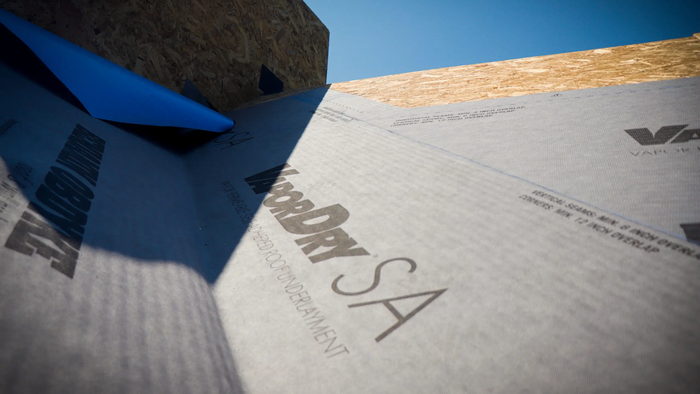Understanding what classes of products are intended to do is an important part of building that, experts say, too many contractors are ignoring, leading to sometimes catastrophic results.
March 2, 2023

It’s an irony of pool and spa building that one of the biggest enemies to the longevity of a vessel is the water itself.
Pools that aren’t properly waterproofed are more susceptible to everything from delamination to efflorescence (when water seeps through concrete and excretes mineral deposits) to degradation of exterior surfaces to outright collapse, according to Jeff Hampe, owner of Hampe Pools, who specializes in full tile pools and luxury remodels.
“Waterproofing concrete is something that should always be done in one facet or another,” Hampe said.
Unfortunately, it’s also unlikely to be done. Hampe estimates that less than one-third of contractors are properly waterproofing pools. “Locally to me there are 132 pool contractors,” said Florida-based Hampe. “And I promise you right now that 20 or less are waterproofing at all. The rest don’t even buy the products.”
Greg Andrews, who teaches about waterproofing alternatives, said part of the problem is that there’s a lot of misinformation in the industry about waterproofing and the various alternative waterproofing methods and products. He even said that he steers away from the word “waterproofing” and instead prefers “damp proofing.”
“Pool builders who educate themselves are going to understand, but it’s not going to be the overwhelming majority of builders,” said Andrews, GENESIS faculty advisor for tile and coping and co-owner of the National Tile and Stone Authority consulting firm.
Hampe had stronger words: “Everyone’s trying to do sh*t cheap, so they don’t want to buy the expensive products. It’s pretty cut and dried: Do you know the information and are you a responsible builder?”
Here’s a general overview of the main alternative waterproofing product classes builders can use, often in combination, to achieve a level of protection that ensures long-lasting pools and spas.
1. Crystalline technology. This class of products reacts with the water and alkalinity in cement to form crystals that tighten porous concrete and make it more waterproof. It can be directly added to the concrete mixture or applied on the surface.
“It’s a wonderful technology to tighten the matrix of concrete and increase the dam proofing, but we in the industry who apply finish surfaces over concrete are a bit leery of it,” Andrews said.
That’s because crystalline technology tends to produce a white powder on the surface of the concrete that can make it difficult to bond to, leading to delamination and other problems. To avoid these issues, other products are typically applied (see below).
2. Colloidal silica. This class of products can also be added to the concrete mix or applied topically. Like crystalline technology it also uses moisture and alkalinity to grow crystals and “densify” the concrete through a pozzolanic reaction. It is supposed to enhance the bondability of the concrete surface.
But Andrews said it’s typically only a first step in the process. “If there’s a void, the water will find it and travel. Anything larger than microscopic, water can pass through it.”
3. Cementitious densifiers. This class of products is a superfine graded silica sand with additional densifiers that is the “consistency of pancake batter,” and is usually painted over the shell of the concrete. As it hardens it closes voids and pores in the shell.
“It’s great for bonding subsequent material to the shell,” Andrews said. “Densifiers are pretty bulletproof.”
4. Elastomeric waterproofing systems. This is a latex class of products that is applied to the surface of the concrete with a special roller. The layer is typically only one-sixteenth inch, which makes it “sensitive and soft,” Andrews said. Tile can then be applied to the surface using a modified thinset mortar product.
While the systems are reliable, they’re also finicky. “There are problems with delamination from user error or hydrostatic pressure popping systems off the wall,” he warned.
5. Finish epoxy tiling products. This class of products is specially designed for applying tile in water settings, and Hampe said it is the method recommended by the Tile Council of North America. He said the epoxy product creates another layer of waterproofing, but many builders mistakenly use a cementitious grout.
“Your grout in your bathroom degrades, so what do you think happens in a swimming pool?” he asked.
He added that using the epoxy product allows him to provide a 25-year warranty on his tiling.
Although it can be difficult to navigate all the different alternative waterproofing options, Hampe said that once builders educate themselves, the rest comes naturally.
“To me, it’s second nature now,” he said. “But the first thing you have to do is accept that it needs to be done, and I’m going to buy the necessary products and do it. As soon as you get past that, everything else is easy.”
About the Author(s)
You May Also Like




